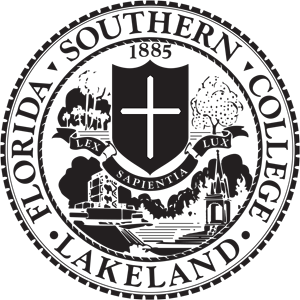
Navigating Fall Finals: Insights from ¹û¶³´«Ã½'s Academic Fuel Center and Student Mentors
Nov 1, 2023

As the Fall 2023 final exams rapidly approach December 11-13, the campus buzzes with excitement and some trepidation. For many students, this marks their first encounter with college finals, adding an extra layer of anticipation and uncertainty to the season.
In times like these, when the academic stakes feel high, Florida Southern College's Center for Academic Fuel stands ready to provide support. Recently renovated, the Center, has become a hub for students seeking academic support, career advice, and personal growth. Its dedicated team of academic coaches and mentors are there to provide the necessary support and resources to help students succeed.
To help students navigate this crucial period, we reached out to the Center's director, Taylor Shook, Assistant Dean of Academic Success, for insights into navigating this time. Peer mentors also share some valuable advice.
Q&A with Taylor Shook, Assistant Dean of Academic Success:
Q: As we near semester exams, should students' study habits change?
A: Students should only consider changing study habits if their previous study methods have been unsuccessful or if their final exam is in a different format than tests they've taken for the class(es) already.
Q: Is there a best way to prepare for exams?
A: The best way to prepare for exams is to create a study plan allowing multiple weeks of studying rather than cramming the week or night before the exam. Students can work with a Peer Academic Success Coach through the Academic Fuel programs for assistance in developing a study plan. Students may also attend instructor office hours, Academic Fuel sessions, instructor supplemental sessions, as applicable, work in study groups, and/or create a study guide. Instructors may also offer study guides – it never hurts to ask!
Q: What preparation resources do students use in Academic Fuel during exam time?
A: Academic Fuel programs operate through the last week of classes each semester. Students can attend sessions for peer tutoring, supplemental instruction, writing assistance, and academic coaching – all opportunities are free and support students as they prepare for final exams.
Q: What kinds of exams will students encounter? Are exams always cumulative?
A: Instructors determine the type of exam and whether the final will be cumulative. To determine the kind of exam to expect, students should attend classes and ask instructors during the course, office hours, or before/after class, as appropriate. Often, students will encounter multiple choice, short response, matching, essay, or a hybrid of question styles during finals. Some final exams may be oral or written rather than exams students sit for during finals week.
Q: How can faculty help with students' preparations for exams?
A: Faculty help students prepare for exams by providing an overview of information to be learned during class, being available outside of class for additional support, providing students with resources, as appropriate, and sharing information that will help students develop their understanding of course information overall. Course instructors are the first resource students should look to for insight into exams and course knowledge.
Exam advice from ¹û¶³´«Ã½ Senior Prasamsa Surapaneni, Lead Academic Fuel Staff, Organic Chemistry PASS Leader, Biochemistry and Organic Chemistry Peer Scholar:
"I think that if individuals have done well on their exams prior, then they should stick to [what worked before]. However, if they have not, they should ask for help. We (with the Academic Fuel programs) would love to have them come to us. The best thing to do is go through resources recommended by a professor. For material-intensive courses, I recommend going through the textbook and PowerPoints if those are provided. There are both comprehensive tests and specific topic-based tests. I believe it is a student's duty to ask for help."
Exam advice from Melanie Herzberg, Sophomore ¹û¶³´«Ã½ Student, Writing Coach:
If you have a study habit that works for you, don't change it. I suggest adding in some new methods and seeing if something works better. Sometimes, different methods work better for a particular subject. For me, I used PASS for my chemistry exams, and the sessions helped me prepare for some hard questions. The exams can also depend on the professor. I've had some written exams that I just had to go over concepts and write on whatever I remembered. For multiple-choice, it's always helpful to review practice questions -- as many as you can. Faculty help best in just being a resource for us. Never be afraid to come up with questions and go to office hours. Ask them questions until you understand."
Students can see the Academic Fuel schedule and make appointments through the single sign-on (SSO). See "Empowering Success: ¹û¶³´«Ã½'s Academic Fuel" to learn more about the services provided.